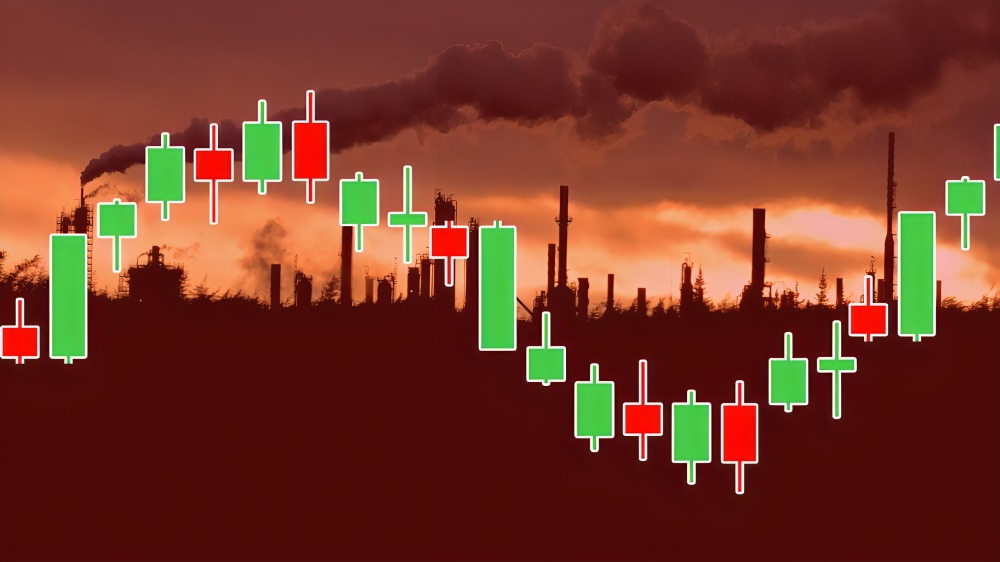
(Photo : BTIN)
- Global oil prices are slightly up due to near-term supply tightness, despite OPEC's downgrade of its global oil demand growth forecast.
- Falling demand projections and China's economic weakness continue to impact market sentiment.
- The re-election of former President Trump could affect oil market fundamentals, with potential supply disruption from Iran or escalation between Iran and Israel.
- The future of the oil market remains uncertain, with various global political and economic factors at play.
The global oil market is witnessing a slight uptick in prices, driven by signs of near-term supply tightness. However, the prices remain close to their lowest in two weeks, following OPEC's downgrade of its forecast for global oil demand growth in 2024 and 2025. Brent futures rose 17 cents, or 0.24%, to $72.06 a barrel, while U.S. West Texas Intermediate (WTI) crude futures gained 14 cents, or 0.21%, at $68.26.
The physical market's tightness has offset bearish sentiment on demand, leading to a slight increase in crude oil prices. Buyers in the physical market have been particularly active, with any available cargoes being quickly snapped up.
However, falling demand projections and weakness in major consumer China continue to weigh on market sentiment. The absence of a more direct fiscal stimulus out of China has been casting a shadow on the oil demand outlook. This is coupled with the prospects of higher US oil production with a Trump presidency and looming OPEC+'s plans for an output raise.
In its monthly report, OPEC stated that world oil demand would rise by 1.82 million barrels per day (bpd) in 2024, down from growth of 1.93 million bpd forecast last month, mostly due to weakness in China, the world's biggest oil importer. OPEC also cut its 2025 global demand growth estimate to 1.54 million bpd from 1.64 million bpd.
Impact of Global Politics on Oil Market
The International Energy Agency, which has a far lower view, is set to publish its updated forecast soon. Analysts at Barclays believe that the re-election of former President Trump is unlikely to materially affect oil market fundamentals over the near term. However, markets would still feel the effects of a supply disruption from Iran or a further escalation between Iran and Israel.
Donald Trump's expected secretary of state pick, U.S. Senator Marco Rubio, is known for his hardline stance on Iran, China, and Cuba. Tighter enforcement of sanctions on Iran could disrupt global oil supply, while a tougher approach to China could further weaken oil demand in the world's largest consumer.
Two U.S. central bankers have suggested that the Federal Reserve would be open to further interest rate cuts, as interest rates are acting as a brake on inflation that is still above the 2% mark. The Fed cut its policy rate last week by a quarter of a percentage point to the 4.50%-4.75% range. Interest rate cuts typically boost economic activity and energy demand.
Trade Resumption Amid COVID-19 Pandemic
In the context of additional relevant news, oil prices edged up on Wednesday on signs of near-term supply tightness but remained near their lowest in two weeks, a day after OPEC downgraded its forecast for global oil demand growth in 2024 and 2025. Brent futures rose 17 cents, or 0.24%, to $72.06 a barrel by 0420 GMT, while U.S. West Texas Intermediate (WTI) crude futures gained 14 cents, or 0.21%, at $68.26.
We may expect prices to consolidate around current levels for longer, said Yeap Jun Rong, market strategist at IG, adding the recent attempt for a bounce was quickly sold into. The absence of a more direct fiscal stimulus out of China has been casting a shadow on the oil demand outlook, coupled with the prospects of higher US oil production with a Trump presidency and looming OPEC+'s plans for an output raise, Yeap added.









